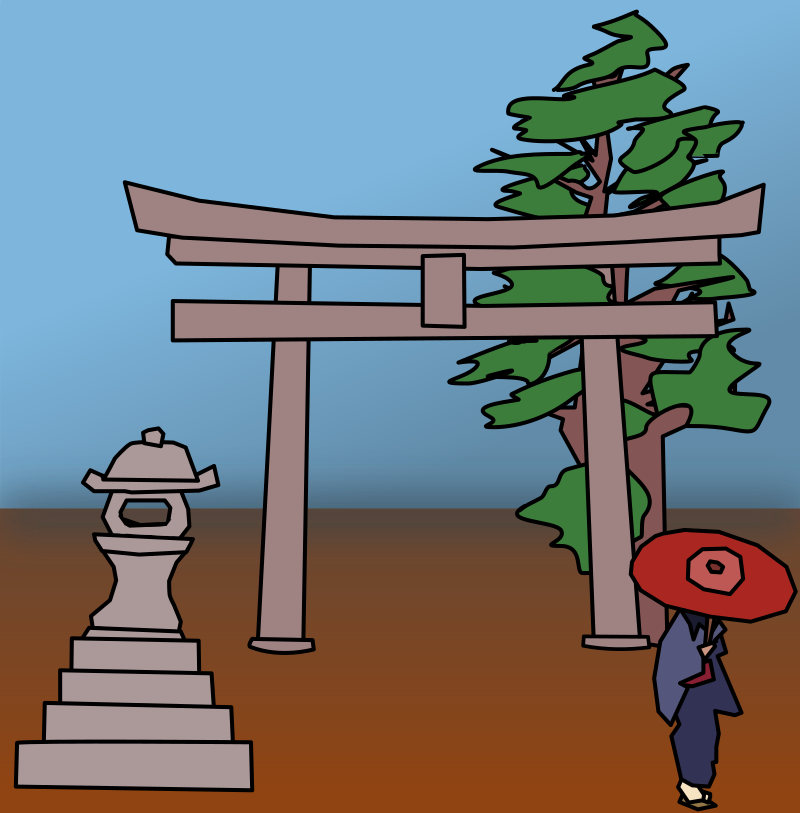

|
OOKA and the Honest Thief Story.pdf Size : 2858.498 Kb Type : pdf |
Summary
One day, Yahichi, the owner of a rice store, came to Ooka‟s court, complaining that each night some of his rice disappeared. “It is such a small amount, your Honor, that I hesitate to trouble you over it,” he said. “But I am reminded of the story of the mountain that was reduced to a plain because a single grain was stolen from it each day for centuries.” Ooka nodded gravely. “It is just as dishonest to steal one grain of rice as it is to steal a large sack,” he remarked.
“I will guard over your store tonight to see if I can catch the mysterious thief myself.” As he had promised, Ooka sat inside and guarded Yahichi‟s store that evening. A little past midnight, he heard a slight noise outside. He sprang to his feet and ran to the window. To his surprise, Ooka discovered Gonta, a labourer who had been out of work for some time, wandering outside the building. Though Ooka recognised the thief, Gonta did not recognise the judge through the window in the dark. Ooka hesitated to arrest the man. After all, he had no proof that Gonta had actually come to steal the rice. Instead, he decided to pose as a thief himself to trap Gonta in the act of committing his crime. Speaking in a disguised tone of voice, Ooka said, “You have obviously come here to steal rice just as I have.” Gonta was relieved to find himself face to face with another thief instead of a guard. “As a favour from one thief to another,” Ooka continued,
“I will pass the rice out to you, so that you will not need to risk coming into the store yourself.” Gonta thanked him profusely for his courtesy, and Ooka picked up a large sack of rice and handed it out to him. “This is too much,” Gonta protested. “I want only a few handfuls, just enough to feed my family for a single day, for each day I hope I will find work and not have to steal anymore. If I do find work, I intend to return what I have taken.” Then he took out the amount of rice he needed and handed the sack back to the astonished judge. Thanking Ooka once more for his courtesy, Gonta disappeared into the darkness. The judge did not try to stop him.
The next day, the judge told the shopkeeper what had happened. “But why did you let the thief go?” Yahichi demanded. “Gonta is certainly a thief,” Ooka replied, “but I am convinced that he is an honest one, for he refused to steal more than he needed.” “But your Honour, how can a man be a thief and honest at the same time?” “I would never have thought it possible, but it is so,” Ooka said. “It is my duty to punish wickedness and reward virtue. In this case, we find both qualities in the same man, so obviously it would be unfair to treat him as any ordinary thief.” “But, Lord Ooka . . .” said Yahichi. “I have made my decision.
Tomorrow I will see that work is found for Gonta, and we will see if he keeps his promise. If he returns and replaces the amount he owes, it will prove my belief that he is an honest thief.” The plan was carried out according to Ooka‟s wishes. And just as he suspected, every night Gonta returned to the shop to replace a portion of the rice he had taken. On several occasions, Ooka put obstacles in his way to make it difficult for Gonta to keep his promise, but the thief was determined to pay back fully what he owed. In the end, Yahichi decided not to press charges, as he admitted that the thief had paid enough for his crime. The great judge smiled and wrote out a small note, which he ordered Yahichi to leave for Gonta to see when he came to return the last portion of rice.
When the honest thief slipped fearfully into the rice shop for the last time, he was shocked to find the note bearing Ooka‟s signature, with the following message: You owe an extra ten percent for interest. Honesty is the best policy.
Source: Adapted from Japanese Folktales as told to J.G. Edmunds. Junior Great Books, 3, 1,Great Books Foundation, Chicago, 1992. (Text altered)